This article was co-authored by Laura Marusinec, MD. Dr. Marusinec is a board certified Pediatrician at the Children's Hospital of Wisconsin, where she is on the Clinical Practice Council. She received her M.D. from the Medical College of Wisconsin School of Medicine in 1995 and completed her residency at the Medical College of Wisconsin in Pediatrics in 1998. She is a member of the American Medical Writers Association and the Society for Pediatric Urgent Care.
There are 13 references cited in this article, which can be found at the bottom of the page.
This article has been viewed 63,584 times.
There are all sorts of ways to wind up with a stuffy nose, which is usually caused by inflammation of your sinus tissues and the buildup of mucus along your nasal passages.[1] Fortunately, there are also many effective methods to get rid of nasal congestion quickly and safely.
Steps
Moistening Your Nasal Passages
-
1Inhale warm, moist air. Inhaling steam can help to clear your nasal passageways and allow to you to breathe more comfortably. There are several ways to breathe steam safely. For an especially quick option:[2]
- Soak a clean towel in hot water and wring it out until the towel is damp.
- Make sure the towel is a safe temperature.
- Place the towel over your nose and mouth and breathe deeply and evenly.
-
2Take a hot shower. Turn the shower on at the hottest water setting. Let it run for a few minutes to steam up the bathroom. Be sure to reduce the temperature to a safe, warm temperature before entering the shower. Breathe deeply, and relax!Advertisement
-
3Give yourself a custom steam treatment. Heat distilled water to just below boiling and pour it into a container that is stable and heat safe. Secure the container by setting it on a flat surface and make sure the rising steam is not too hot to breathe safely. Lean over the container and deeply breathe in the steam. For maximum steaminess, tent a towel over your head and the container.
-
4Get a humidifier or vaporizer. This may be an especially worthy measure to take if you’re spending time in an environment with dry air. Both add moisture to the air, which will ease congestion due to a cold or dry nasal passages. Vaporizers increase air humidity by producing steam, and some include features that allow you to vaporize menthols or other additives that may further increase your comfort.[3]
-
5Hydrate heavily. This is an important step, both in the short and long term. Staying hydrated can help keep your mucus thin, which can help keep your nasal passages from blocking up.[4]
- As a rule of thumb, men should drink at least 13 cups (3 liters) of liquid per day, and women should drink nine cups (2.2 liters).[5] When ill, you should be drinking even more!
- Hot tea, clear broth, and hot water with lemon and honey are great beverages options, as rising steam will immediately improve breathing, and hydration is a key aspect of getting and staying healthy! Just make sure they are not so hot you burn your mouth!
- Avoid beverages with alcohol, high amounts of sugar, and caffeine. These drinks can work against your body’s ability to stay hydrated.
-
6Use a saline spray. Saline spray, which is actually just salt water, will often immediately alleviate congestion-related discomfort.
- Make your own saline spray with 1 teaspoon of table salt and 2 cups of warm water. Stir until salt is dissolved and apply to nostril with a nasal syringe.[6]
-
7Use a nasal irrigation tool. Some readily available options include squeeze bottles, bulb syringes, or Neti-pots. Flush the nasal passages with a sterile saline solution. This will remove thickened mucus and allergens that are the most likely culprits of nasal congestion. [7]
- Make your own saline solution by mixing 16 ounces of lukewarm water with 1 teaspoon of salt. Adding a ½ teaspoon of baking soda will reduce the stinging sensation.
- Squirt the solution into one nostril, then let it drain through your nasal cavity and out the other nostril. Be sure to keep your mouth open and don't breathe through your nose.
Taking Supplements and Over-the-Counter Medications
-
1Take Zinc. Zinc may prevent cold viruses from replicating and is thought to shorten the duration of your cold.[8]
- You’ll benefit most from taking zinc as soon as cold symptoms appear.
- Take zinc as a throat lozenge. Allowed it to fully dissolve in the mouth — do not chew or swallow.
- When purchasing zinc, make sure the source is either zinc gluconate or zinc acetate.
- Take 75 mg of zinc every 24 hours while symptoms persist. The upper intake level of zinc is 40 mg per day. Do not exceed 40mg daily of zinc for more than a few days in a row.
- The combination of excess zinc and low copper levels can actually suppress immune system; Make sure you have adequate copper intake while using higher than usual doses of zinc.[9]
-
2Take vitamin C. Recent research indicates that vitamin C does little on its own to reduce the length or severity of colds. If, however, your body endures high physical stress, vitamin C may increase your resistance to colds.[10]
- Any dosage of vitamin C over 500 mg cannot be absorbed by the body. 1,000 mg spread over the course of a day is plenty.
- Do not take more than 2,000 mg of vitamin C per day.
- Do not take vitamin C supplements if you have kidney disease.
-
3Use an over-the-counter decongestant. These reduce swelling, which eases stuffiness and pressure associated with congestion. Phenylephrine, phenylpropanolamine, and pseudoephedrine are especially common types of decongestants. There are several forms to choose from, including sprays and pills. Always follow the directions on the medication's packaging.[11]
- Be careful with decongestant sprays. They should not be used for more than three consecutive days. Using longer than this can lead to rebound symptoms, meaning your symptoms may return even worse than before.
- Limit decongestant use when pregnant. Past studies have tied phenylephrine and phenylpropanolamine use during the first trimester of pregnancy to rare birth defects. More recently, research has indicated that pregnant women can safely use over-the-counter decongestants for short-term ailments. Use only those products that are appropriate for the symptoms while pregnant and talk to your doctor or pharmacist before taking medications while pregnant or breastfeeding.
- Do not take decongestants while breastfeeding.
- Do not take decongestants if you are taking monoamine oxidase-inhibiting antidepressants.
- Consult a doctor before taking decongestants if you have:
- Diabetes
- High blood pressure (hypertension)
- Hyperthyroidism
- An enlarged prostate gland
- Liver damage (such as cirrhosis)
- Kidney disease
- Heart disease (or weak blood circulation)
- Glaucoma
-
4Use an antihistamine. If a stuffy nose is caused by an irritant that leads to an allergic reaction, antihistamines will be especially effective in relieving congestion.[12]
- Take care when using antihistamines, as they may cause you to become drowsy. Do not operate a vehicle while taking antihistamines if you are unaccustomed to their effects upon your body.
- Do not take antihistamines if you are breastfeeding. Though most antihistamines are safe during pregnancy, they may irritate your nursing baby, and may decrease the flow of breastmilk.
Alleviating Congestion With Spice and Aroma
-
1Eat spicy food. Get your nose running by thinning built-up mucus. Sometimes even a sniff of spicy food will work! Try these:
- Hot peppers, especially chili peppers
- Ginger
- Garlic
- Horseradish
-
2Add essential oils to your steam. Throughout history, cultures have used different herbs and botanicals to supplement steam’s ability to provide relief from congestion. Essential oils, which are condensed botanical material, are available as therapeutic grade quality, and can easily be added to vaporizers or steam treatments of other sorts.
- To make your own essential oils, three drops of oil will be plenty for four cups of water. In the steam treatment described above, add oil to water once it is removed from heat. Take care; essential oils have an especially potent aroma. There are many essential oils to choose from, and many will have similarly effects. Try these:
- Peppermint. Peppermint has lots of menthol in it, which may be comforting.
- Eucalyptus
- Rosemary
- Lavender
- Tea tree
- To make your own essential oils, three drops of oil will be plenty for four cups of water. In the steam treatment described above, add oil to water once it is removed from heat. Take care; essential oils have an especially potent aroma. There are many essential oils to choose from, and many will have similarly effects. Try these:
-
3Drink Peppermint tea! This provides steam, a soothing aromatic, and hydration. Make your own by steeping 1 teaspoon of dried peppermint leaves in 1 cup of boiling water for 10 minutes. While you wait for the tea to cool, menthol in the rising steam will provide great congestion alleviation.
Warnings
- Helping babies breathe clearly during a cold requires extra special care. The methods included in this article are meant for adults. Talk to your child's doctor for advice on caring for your baby.⧼thumbs_response⧽
- Though nasal congestion is usually just an annoyance, it may indicate a more serious issue. Call your doctor if:[14]
- You have a severe headache or neck pain.
- Your symptoms last more than 10 days.
- You have a high fever, particularly if it lasts more than three days.
- You have persistent, bloody, or green nasal discharge and sinus pain or fever.
- You also have a bad cough or sore throat.
⧼thumbs_response⧽ - Don't be tricked by the spiciness of Wasabi. This food can actually worsen congestion.⧼thumbs_response⧽
References
- ↑ https://www.ncbi.nlm.nih.gov/pmc/articles/PMC2866558/
- ↑ https://www.mountsinai.org/health-library/symptoms/stuffy-or-runny-nose-adult
- ↑ https://my.clevelandclinic.org/health/symptoms/17980-nasal-congestion
- ↑ http://www.mayoclinic.org/diseases-conditions/common-cold/in-depth/cold-remedies/art-20046403
- ↑ http://www.mayoclinic.org/healthy-living/nutrition-and-healthy-eating/in-depth/water/art-20044256
- ↑ http://www.med.umich.edu/1libr/PedSurgery/ColorectalProgram/SalineSolution.pdf
- ↑ http://www.webmd.com/allergies/sinus-pain-pressure-11/slideshow-natural-remedies
- ↑ https://lpi.oregonstate.edu/mic/health-disease/common-cold
- ↑ https://ods.od.nih.gov/factsheets/Zinc-Consumer/
- ↑ https://lpi.oregonstate.edu/mic/health-disease/common-cold
- ↑ https://www.nhs.uk/conditions/decongestants/
- ↑ https://my.clevelandclinic.org/health/drugs/21223-antihistamines
- ↑ https://www.betterhealth.vic.gov.au/health/conditionsandtreatments/sinusitis
- ↑ http://www.mayoclinic.org/symptoms/nasal-congestion/basics/when-to-see-doctor/sym-20050644
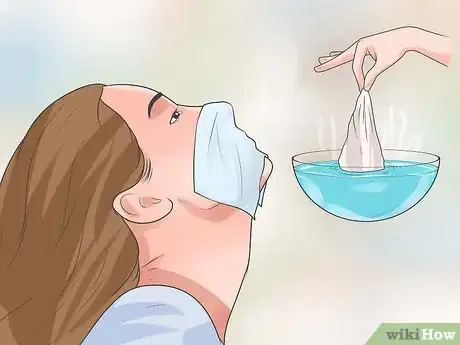
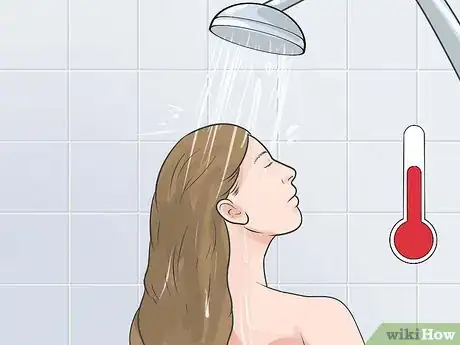

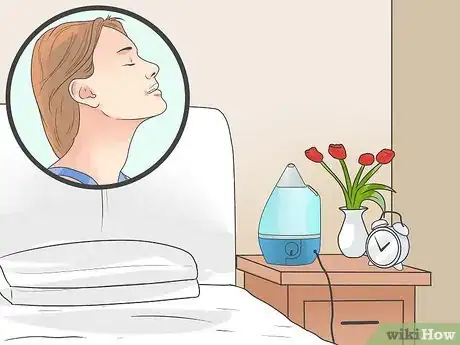

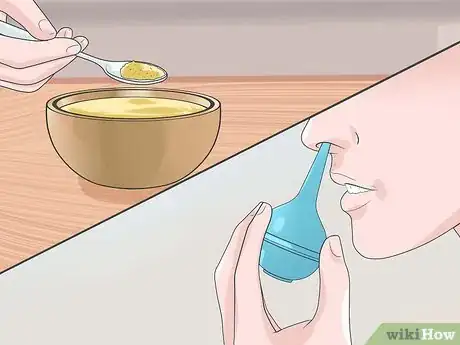
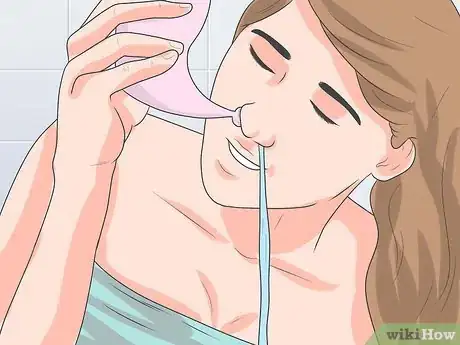
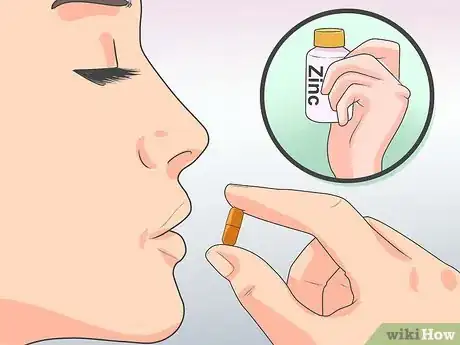
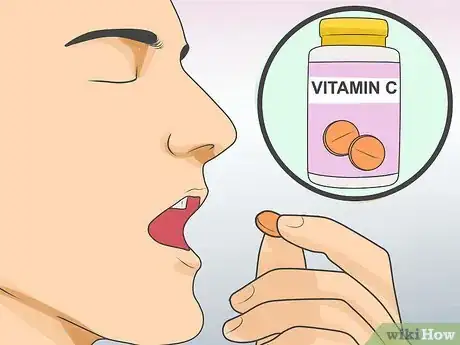
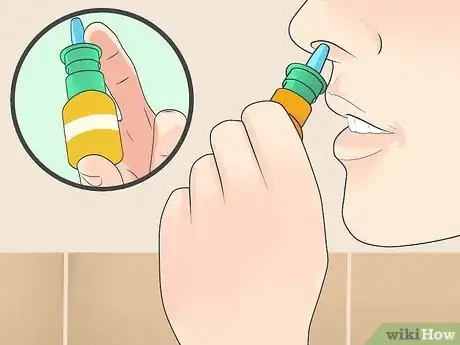
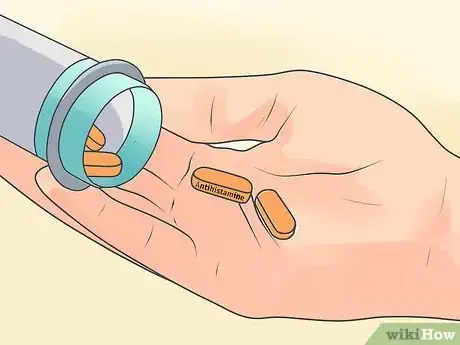
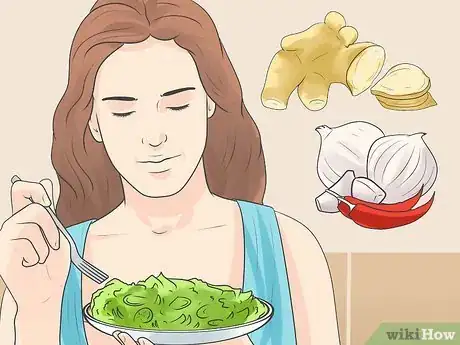
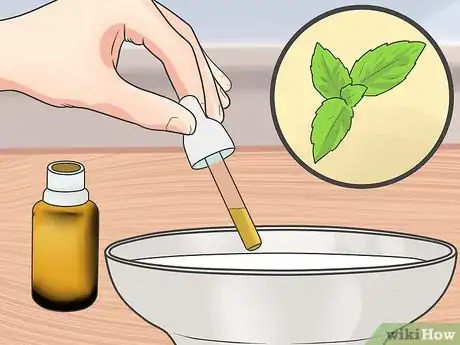






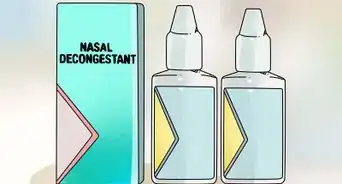
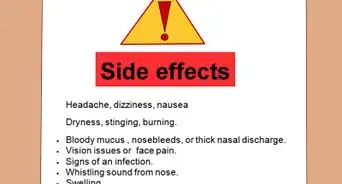

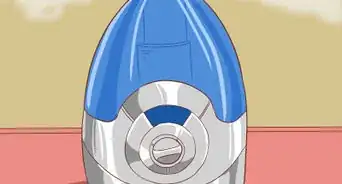


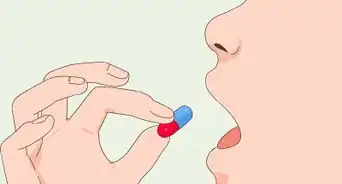


















































Medical Disclaimer
The content of this article is not intended to be a substitute for professional medical advice, examination, diagnosis, or treatment. You should always contact your doctor or other qualified healthcare professional before starting, changing, or stopping any kind of health treatment.
Read More...